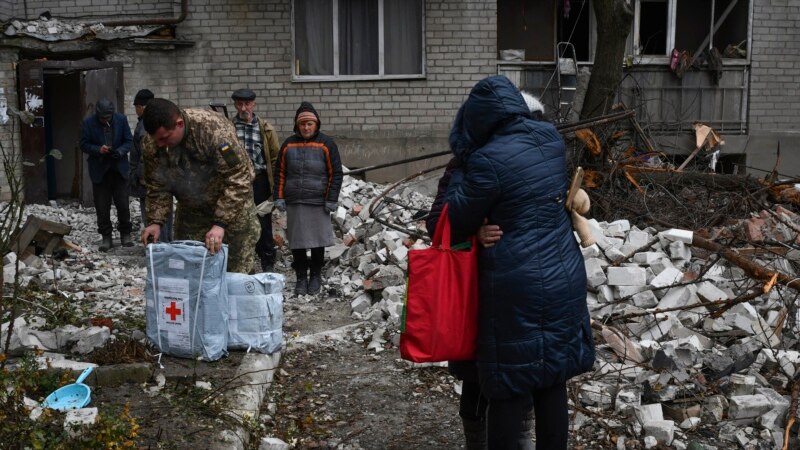
Newly empowered U.S. Republican lawmakers set to take leadership roles in the House of Representatives in January promised Sunday that Congress would continue to support Ukraine militarily in its nine-month fight against Russia but said there would be more scrutiny of the aid before it is shipped to Kyiv’s forces.
Congressmen Michael McCaul of Texas and Mike Turner of Ohio, likely key officials overseeing new Ukraine aid packages, told ABC’s “This Week” show there would be continued bipartisan Republican and Democratic support for Ukraine as Republicans assume a narrow House majority, even though some opposition from both parties has emerged.
Turner, likely the new chairperson of the House Intelligence Committee, said, “We’re going to make sure they get what they need. We will have bipartisan support.”
McCaul, the likely head of the House Foreign Affairs Committee, said, “If we give them what they need, they win.”
But McCaul said there would be a difference in considering Ukraine aid from the outgoing Democratic control of the House when Republicans take over.
“The fact is, we are going to provide more oversight, transparency and accountability,” he said. “We’re not going to write a blank check.”
On the battlefield, Russia struck several areas in eastern and southern Ukraine overnight Saturday, Ukrainian officials said, as utility crews tried to restore power, water and heating following devastating attacks on infrastructure in recent weeks. Some Ukrainians only have a few hours of electricity a day, if any.
But Ukrenergo, the state power grid operator, said Sunday that electricity producers are now supplying about 80% of demand, up slightly from Saturday’s 75% figure.
In its daily report, the British Defense Ministry said both Russia and Ukraine have committed “significant forces” to the area around the Ukrainian towns of Pavlivka and Vuhledar in the south-central Donetsk province.
The agency said in an intelligence update posted on Twitter Sunday that the area “has been the scene of intense combat over the last two weeks, though little territory has changed hands.”
The area will likely remain “heavily contested,” the ministry said, because “Russia assesses the area has potential as a launch point for a future major advance north to capture the remainder of Ukrainian-held Donetsk Oblast.”
However, the ministry said the odds of Russia realizing that goal are slim because “Russia is unlikely to be able to concentrate sufficient quality forces to achieve an operational breakthrough.”
On Saturday, Ukrainian President Volodymyr Zelenskyy hosted a summit in Kyiv to mark the 90th anniversary of Holodomor, or the Great Famine, and to promote the Grain from Ukraine initiative to send grain to countries most afflicted by famine and drought.
The Holodomor was a manufactured famine engineered by Soviet dictator Josef Stalin in the winter of 1932-1933, during which as many as 8 million Ukrainians died.
Zelenskyy used the anniversary to reiterate Ukraine’s commitment to export grain and other foodstuffs to the global market. These are “not just empty words,” he said.
“In general, under the Grain from Ukraine program, by the end of next spring, we plan to send at least 60 vessels from our ports — at least 10 per month — to countries at risk of famine and drought,” he said. “This is Ethiopia, these are Sudan, South Sudan, Somalia, Yemen, Congo, Kenya, Nigeria.”
The initiative is in addition to the U.N.-brokered deal that allows shipments of Ukrainian grain through the Black Sea. The Kremlin has said those Ukraine exports have not been reaching the most vulnerable countries.
Zelenskyy said Kyiv had raised around $150 million from more than 20 countries and the European Union to export grain to at-risk countries.
Ukrainian Prime Minister Denys Shmyhal said Ukraine — despite its own financial straits — has allocated $24 million to purchase corn for countries in need.
Radio Free Europe/Radio Liberty contributed to this report. Some material for this report came from The Associated Press, Reuters and Agence France-Presse.
